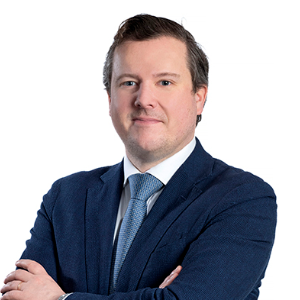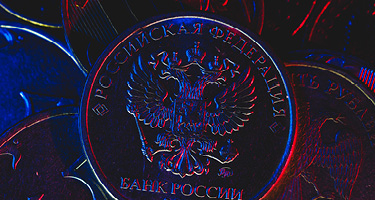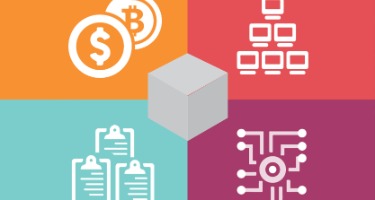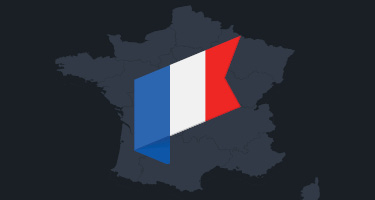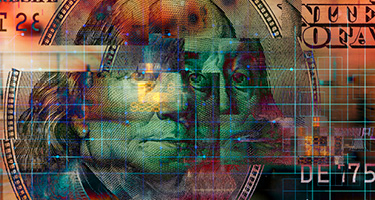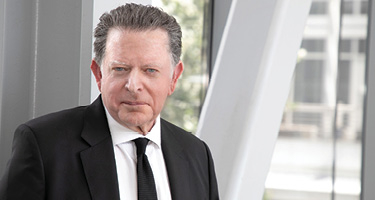After a recent "Law Firm of the Year" interview, Geoffroy Goubin of Bougartchev Moyne Associés shared his thoughts on cryptocurrency projects in France and the country's attempts to promote growth in the industry.
What changes have there been in France as it relates to the cryptocurrency market and how the French government recognizes these projects?
In France, Law n°2019-486 implemented on 22 May 2019 has brought different interesting mechanisms in order to control these spaces, while respecting their intrinsic free nature:
1. Optional visa for ICOs
A token issuer wishing to make an initial coin offering may request a visa from the French Financial Market Authority (Autorité des Marchés Financiers (“AMF”)), which is responsible for verifying the following guarantees:
- the token issuer is constituted in the form of a legal person registered in France;
- a “white paper” has been established;
- a process enabling to monitor and protect the assets collected has been implemented;
- a process enabling the respect of obligations regarding the fight against money laundering and terrorist financing has been implemented.
The “white paper” should contain:
- a detailed description of the ICO’s project;
- a detailed description of the rights and obligations attached to the tokens;
- a detailed description of the offer’s characteristics (number of tokens, price, subscription conditions, minimum amount required to carry out the project and maximum amount);
- technical procedures for issuing tokens;
- a detailed description of means implemented to enable the monitoring and protection of the assets collected;
- a description of the tokens’ issuer main characteristics and an introduction of the main stakeholders in the design and development of the project; and
- the risks relating to the tokens’ issuer, to the tokens, to the ICO and to the project implementation.
At the end of the project review, the AMF decides whether to grant or refuse the visa. Once the visa has been granted, the “white paper” is made available to the public by the token issuer on its website.
2. Optional visa for service providers on tokens and cryptocurrencies
Service providers on digital assets - digital assets including tokens and cryptocurrencies – may be approved and placed under the supervision of the AMF, if they so wish. This new optional visa will cover a wide range of activities, and specifically:
- the preservation of digital assets on behalf of a third party;
- the purchase and sale of digital assets against legal tender or other digital assets (brokerage);
- the operation of a digital asset trading platform (stock exchange);
- other services on digital assets such as receiving and transmitting orders on behalf of third parties, portfolio management on behalf of third parties, advice, underwriting, guaranteed investment and non-guaranteed investment.
Approved service providers will be subject to a common set of rules. A decree and the AMF General Regulations will specify the contours of each of services above-mentioned.
3. Mandatory registration for two specific services
Whether or not they choose to obtain a visa, service providers wishing to exercise the activities of preservation of digital assets on behalf of a third party, and purchase and sale of digital assets against legal tender must be registered with the AMF. The AMF will check the following points:
- the good repute and competence of their managers and shareholders; and
- the existence and implementation of procedures to fight against money laundering and terrorist financing.
4. Possibility for certain funds to invest in tokens and cryptocurrencies
Two types of funds will now be able to invest in digital assets:
- specialized professional funds, subject to compliance with the liquidity and valuation rules applicable to them; and
- professional private equity funds up to 20% of their assets.
5. Creation of new offences
The Monetary and Financial Code now incriminates certain behaviors mainly in relation to the fact of not registering with the AMF when registration is mandatory or the fact for a token issuer to disseminate information containing inaccurate or misleading information.
These new offenses are punished by prison term up to two years and a fine up to EUR 30 000 (e.g. Article L.572-23).
There are other use cases for crypto tokens other than currency, where do you see them fitting in to the global ecosystem?
The main issue, from a legal point of view, is that one of the use cases of crypto tokens is as a relatively anonymous form of payment for transactions on the dark web. This includes of course illicit transactions, such as the purchase of drugs, money laundering, and sanctions evasion.
Recent studies reported that around $76 billion of illegal activities per year involve Bitcoin. Along with being the dark web’s preferred digital asset, crypto tokens have also been requested as ransom for kidnappings and used to store or transfer money to circumvent sanctions.
After generating revenue using cryptocurrency, criminals must then launder the money in order to make it appear as legitimate earnings. This can be done through the use of cryptocurrency tumblers (to improve anonymity), the purchase of prepaid gift cards, or withdrawals from cryptocurrency exchanges and ATMs that do not follow anti-money laundering (AML) regulations. Countries with weak AML regulations also serve as an ideal location to launder money.
Technological advances bring rise to new tools for criminals to use and pose a constantly evolving challenge to law enforcement.
However, the offenses per se already exist and the question today is more about technical investigation means to identify such kind of offenses rather than the implementation of new regulation.
Since France allows Blockchain projects to obtain bank accounts in exchange for regulatory oversight, have you seen/heard/ found these startups to be open to this arrangement?
As you know, this possibility is relatively new. In fact, the French Monetary and Financial Code has been modified at the end of May 2019 and the corresponding Decree specifying the existing remedies in case a bank would refuse to open a bank account has not been published yet. So this right is purely theoretical at this stage.
This said, an assessment committee has just been formed. It would have to file a report mid-2020 regarding the consequences of the optional visa (discussed during our interview) on the number of ICO in France as well as the consequences on the above mentioned possibility to open a bank account. We will keep you updated on the content of this report.
Once those issue are addressed, are there any projects you are excited or interested in – utility tokens, security tokens, blockchain use cases?
An exciting project is tomorrow’s challenge to combine traditional law firms with legal tech using blockchain technology.
Bougartchev Moyne Associés was recently named France’s 2020 “Law Firm of the Year” winner in Criminal Defense. Kiril Bougartchev spoke with Phillip Greer, CEO of Best Lawyers, about what that award meant for his firm.
You can never anticipate success to happen and I am very grateful with our clients and colleagues for trusting us this way.
In fact, we have doubled the number of legal entities as clients in two years and significantly increased the number of individuals. I guess this is the sign that our firm is well recognized in the market in our four practice areas (white-collar crime / compliance & regulatory / civil & commercial litigation / internal & external investigations). Moreover, we have noticed that some clients prefer to work with French boutiques (rather than foreign international law firms). Finally, it goes without saying that we are less exposed to conflicts of interests and much more flexible regarding price policy, especially with historical clients.
Colleagues (either international law firms or boutiques) have also become our main source of new clients. They call us each time they face conflicts of interests or have to build a strong legal team, which is very often the case, especially in white-collar crime matters. They know we work as a the litigation departments of international law firms and therefore share the same standards. And, of course, they do not fear that we are going to steal their client in different practices as we only focus on litigation. As a result, over the last 18 months, almost 80% of our new clients were sent by colleagues.
This said, I think I can claim that our firm is quite unique in the French market. After having been the first to create a white-collar crime department in an international firm, we are the first lawyers with such experience to have left a large firm to create a specialist firm dedicated to litigation. Our team of 15 lawyers includes, in addition to the two partners, nine highly trained and bilingual associates and four legal interns, capable of dealing with the same issues to the same exacting standards and responsiveness as in large firms, but with greater flexibility with respect to our clients.

